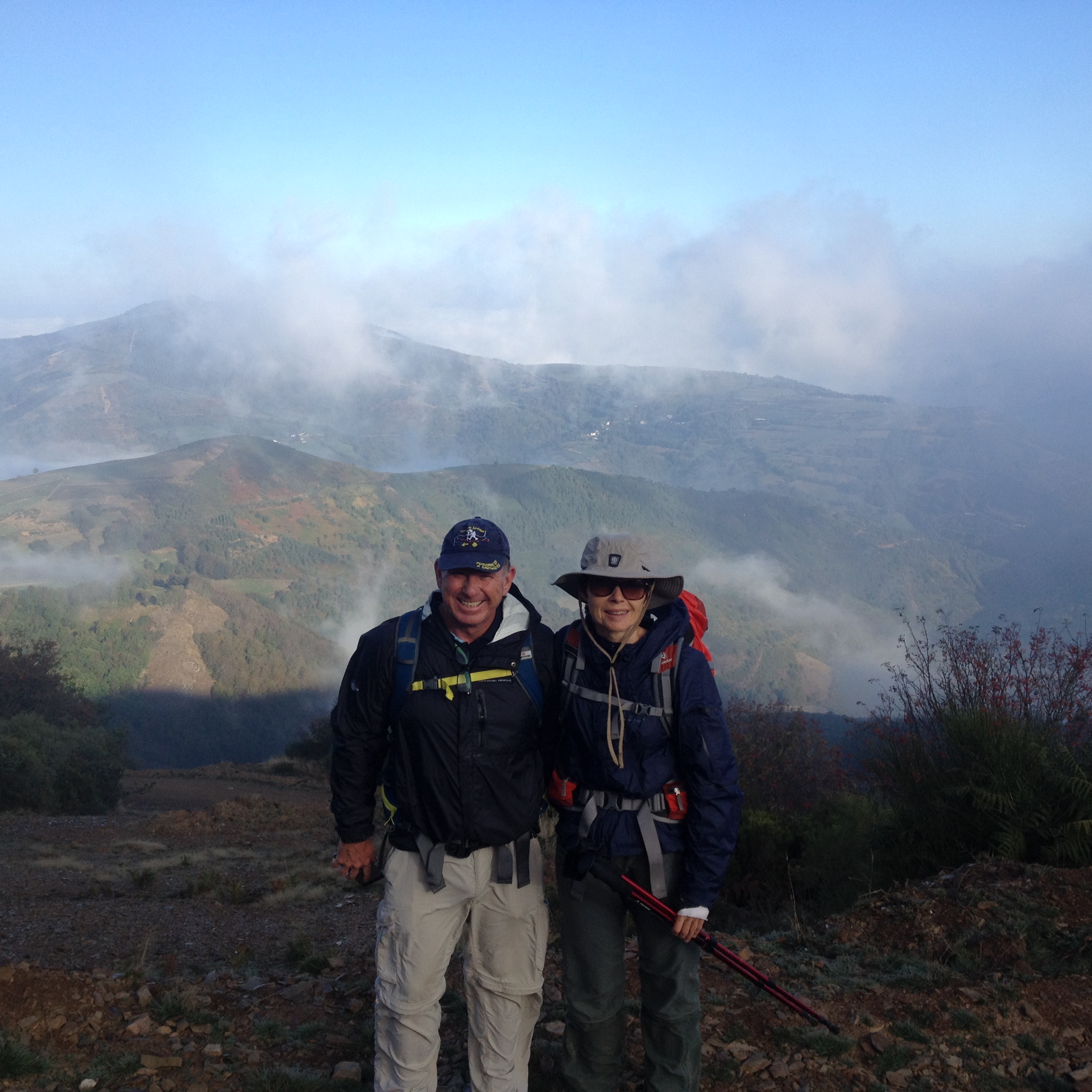In the four years since my partner and I completed the 800 kilometre trek across northern Spain on the Camino de Santiago pilgrimage, I’ve been asked many times, ‘Did you experience any spiritual enlightenment? Discover the meaning of life?’
As we trudged past cornfields and vineyards, up never-ending hills and down steep tracks of rocks and shale, the occasional deep thought did occur to me, apart from ‘When can we stop and eat some chocolate?’
The truths I pondered on were not new ones to me. They were truths I already knew, brought to mind again and given a fresh perspective by my new surroundings and experiences.
1. Every step forward is progress
Sometimes you’re not in the mood, you’re tired and grumpy, and taking those first few steps is a gigantic effort.
But once you do, the momentum keeps you going and sometimes the days when you feel most unmotivated can end up being the most enjoyable and productive.
As a writer, I find this particularly applies to my creative process.
2. When eating an elephant, take one bite at a time
This saying was attributed to Creighton Adams, a US army general in the Vietnam War. Why he chose an elephant for his metaphor I have no idea, but it illustrates the point.
When you think of walking 800 kilometres, it seems like a Herculean task. But by focusing on the present – just what you can do today – and not the final destination, the task is not so daunting.
However, I’m the first to admit it’s easier said than done. Along the Camino there are signposts telling you how many kilometres you have still to go, and several times, I turned to my partner and wailed, ‘ We’re not even half way there!’
‘I’m not taking any notice of those signs,’ he said, in his sensible, rational way. I could have clobbered him.
3. Stop and look back at how far you’ve come
You’re often so engrossed in the journey, plodding away day after day, that you don’t realise how much progress you’re making until you stop and look back.
Especially when you reach the top of a hill, and you can marvel at the tiny speck of village in the distance that you left from that morning.
Giving yourself a pat on the back for how far you’ve come gives you a tremendous morale boost, and the energy and motivation to keep going.
4. Don’t compare yourself to others
This is my nemesis. I was slow going up the hills and others were striding ahead of me, reaching the top as fresh as a field of daisies. Whereas I was wilting and drooping like a vase of dead flowers.
‘Why is everyone so much faster and fitter than me?’ I wondered.
But the truth was that not everyone beat me up the hills. There were many behind me, and in the larger scheme of things, why did it matter? I got there in the end.
We often think others are more productive, more successful, more fulfilled then we are. But the only person you should compare yourself to is you. (See step 3). As Mark Twain said, ‘Comparison is the death of joy.’
And by making you miserable it also affects your creativity and productivity. It’s a lose-lose situation.
5. Perseverance outshines ability
Before I started the Camino de Santiago, I was under the impression you had to be reasonably fit and strong to undertake such a long trek.
But I was wrong. We met people of all shapes, sizes and physical condition.
Obese people, people in their seventies and eighties who swallowed handfuls of medication every morning at breakfast. People with a limp or gammy knees and hips; all sorts of injuries.
A friend broke a bone in her foot when she was less than half way along the journey. She strapped it up and kept on walking. One elderly gentleman shuffled along looking as if he were about to keel over any moment. But he didn’t.
None of these people allowed their afflictions to stop them achieving their goal. Quitting was not an option, they just kept going till they got there.
It’s not necessarily the brilliant ones who are successful, it’s those who never give up.
6. Everyone’s journey is unique
Their experiences, the people they meet, their successes and struggles. Even two people who travel the exact same route at the same time, as my partner and I did, will have completely different impressions, thoughts and feelings about it.
That’s why it’s fascinating to read other people’s accounts of an experience you’ve been through – to observe the similarities and differences of their perspective to yours.
Sharing your journey – and your lessons learned – can be one of the most inspiring and fulfilling things you can do.


